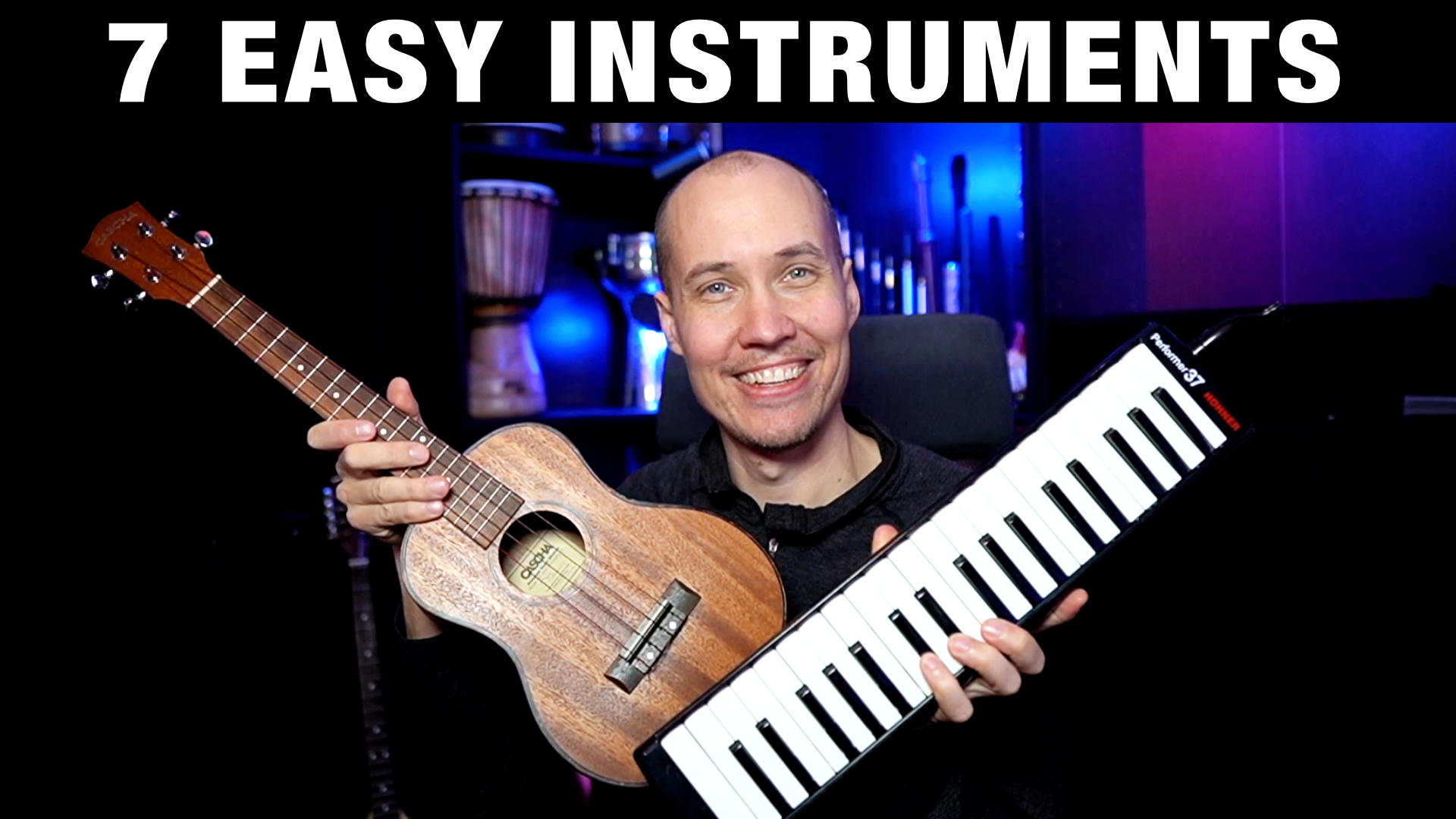 Learning to play any music instrument is incredibly rewarding, and I highly recommend everyone to learn how to play at least 1 instrument.
Learning to play any music instrument is incredibly rewarding, and I highly recommend everyone to learn how to play at least 1 instrument.
Now, the issue most beginners will struggle with is frustrations and road blocks in the very start of their learning journey on their chosen instrument. If you tried learning guitar, violin, trumpet etc. as your first instrument, you may have felt the resistance from slow progress.
How can you solve this? Well, my best advice is to simply choose one of the easiest music instruments, at least as your first instrument.
This way you will feel the fast progress, and this will motivate you further as you will be able to start playing real songs and tunes in a short time, and even add your expression, emotion and character into your performances! =)
7 Easy Instruments for Beginners
I personally play a lot of instruments in many different instrument families, and what I’ve discovered over the years is that some instruments are so much easier to learn, even for a complete beginner.
So I made this list for you, with 7 recommendations of easy instruments you can try out, pick the one you enjoy the sound and feel of the most, and have fun on your learning journey:
1 – Ukulele
This is by far the easiest instrument to get started with if you love the sound of plucked and strummed strings.
It is small, light, only have 4 strings, and doesn’t require much physical strength in your fingers and hands to play. In short: a perfect first instrument, especially if you ever want to continue and learn guitar or any other fretted string instrument.
2 – Native American Flute
One of the easiest flutes you can play, with a wonderful mellow tone that is very peaceful and expressive. I often recommend this instrument to people that want to play an instrument that also helps with relaxing and calming.
3 – Lyre Harp
This is basically a miniature harp, which makes it small and portable. It’s also diatonic, which means it is tuned to one key, and that way you can basically play anything at will always sound good.
A very soft instrument, which makes it perfect if you want to play while not disturbing family members or neighbours. And of course, incredibly beautiful with its open string sound.
4 – Tongue Drum
This is a drum like instrument, but with small “tongues” that you hit with mallets or your fingers and hands to produce different tones.
Almost all tongue drums are diatonic, which means it is tuned to 1 key, and therefore very easy to improvise on, and it will always sound good. You hardly need any practice at all to be able to learn how to play this instrument.
5 – Harmonica
One of the easiest wind instruments, which is also super cheap, and extremely light and portable. Perfect for bringing with you anywhere, as it fits even into your pocket.
A standard harmonica is diatonic, which makes it much easier to learn, but with advanced techniques you can learn to do note bending to reach the in between notes.
6 – Melodica
If you like the keyboard layout, but also enjoy the expressive potential from wind instruments where you literally add your breath and soul into each note…the melodica is perfect as your first instrument.
You simply press a key and blow into a mouth-piece on the side to play notes. And the keyboard layout makes the transition to piano or any keyboard instrument much easier when you want to proceed on your music journey.
7 – Piano
The piano, or any digital piano or keyboard instrument is a great first instrument. It is the “king of all instruments”, and you will therefore be able to learn and master all aspects of music if you continue on this instrument: rhythm, chords, harmony, voice leading, groove, melody, riffs etc. The piano can do it all!
But, the main point of learning the piano/keyboard as your first instrument, is that it’s very easy to learn it in steps, where the beginning can be very easy. Simply focusing on playing melodies, without any backing bass lines or chords, makes the piano perfect for your first baby steps in music.
Also, with a digital piano you can practice quietly with headphones, without disturbing people around you, and not having their noise disturb your practice.

